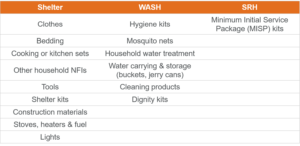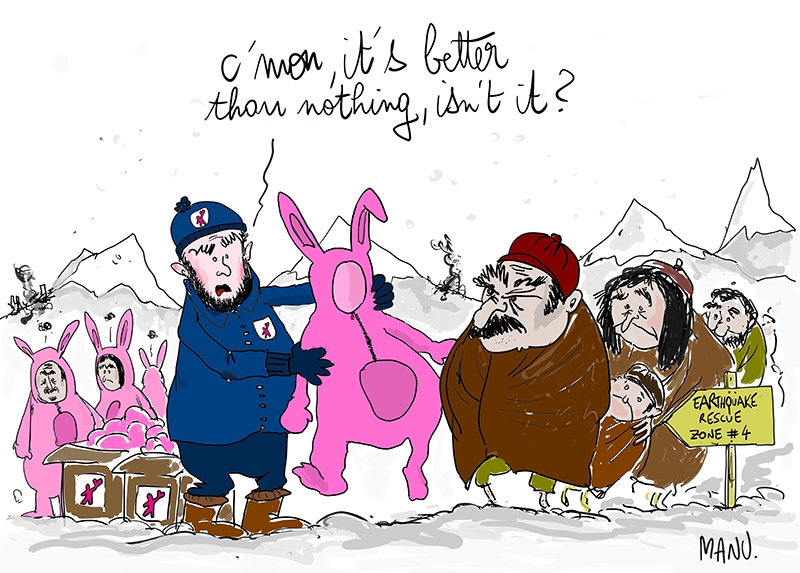4.2 Clothes & household NFIs

Why not cash?
Wherever possible, it is better to give people cash, not stuff. Before deciding to give NFIs, answer these questions:
1. Why not cash?
2. And if not now, when?
Non-food items (NFIs) are a very common emergency response modality. Household NFIs are normally considered to be part of the shelter sector, but not all NFIs are shelter. Support on choice, procurement and delivery of the different NFIs can be obtained from the relevant technical teams:

Shelter NFIs are most often distributed in kits, such as:
- Emergency shelter kits
- Winterisation kits
- Repair kits or fixing kits
- Cooking kits / kitchen sets
- Tool kits
- Household kits, or ‘general household support kits’
‘General household support kits’ often contain items from both shelter and WASH sectors. It is important that distribution of all items is supported with the necessary training on proper use, or hygiene promotion (e.g. jerry can cleaning). Contact the WASH team for support on WASH NFIs.
Selecting the right NFIs
NFI Technical Working groups are normally set up within the national shelter cluster or working group to discuss the technical aspects, specifications and adaptation of standard kits to the local preferences and needs in consultation with all sector partners.
It is important to think carefully about what NFIs are provided, and to whom. Women, men, girls and boys will all have specific needs, as will people with disabilities, elderly people and other groups. Gifts provided in kind by donors may not be appropriate, and should be treated with great caution. For more detailed guidance on what to consider when selecting NFIs see Selecting NFIs for Shelter.
As part of the Emergency Preparedness Planning (EPP) process, high risk Country Offices should design culturally- and gender-appropriate kits and pre-identify suppliers.



